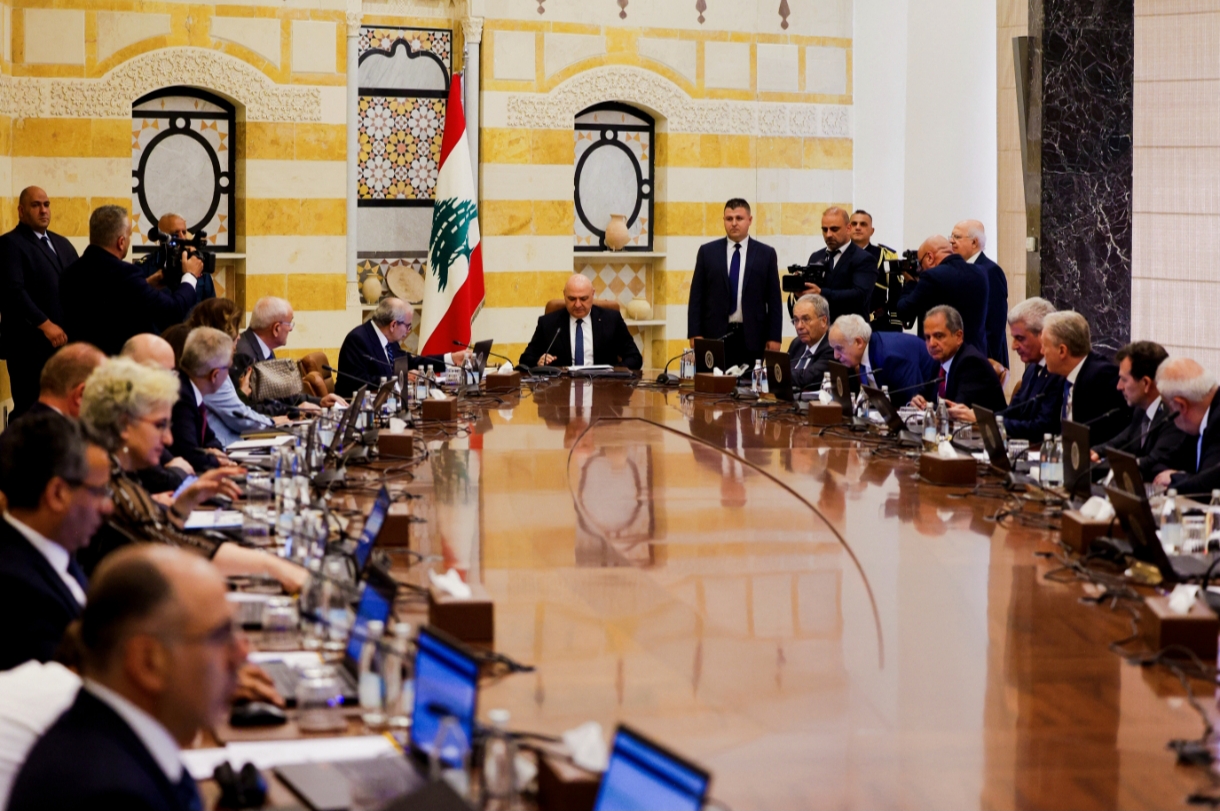Nawaf Salam: The restriction of weapons to the state is a condition for economic reform in Lebanon
September 6, 2025134 ViewsRead Time: 2 minutes

Font Size:
16
The Lebanese Cabinet approved the army's plan to restrict weapons to the state during a session chaired by President Joseph Aoun, in a move aimed at enhancing national security and maintaining civil peace.
The plan focuses on preventing the transfer of weapons throughout Lebanese territory, emphasizing the necessity of establishing state authority over all regions.
In a comment after the session, Lebanese Information Minister Paul Marqos welcomed the plan, noting that the government will be keen to follow up on its implementation, with the army providing a monthly report to the government on its progress.
Marqos emphasized that "no investments will come without restricting weapons to the state," asserting that this decision is essential to ensure the stability of the Lebanese economy.
For his part, Prime Minister Nawaf Salam confirmed the government's commitment to implementing the weapons restriction plan decided in the session on August 5.
He explained that any economic reforms must be accompanied by steps on the ground to ensure security in the country.
Despite the government's consensus on the army's plan, the session witnessed the withdrawal of five ministers affiliated with the "Shiite duo," Hezbollah and the Amal Movement.
The withdrawing ministers are: Yassin Jaber (Minister of Finance) and Tamara Al-Zein (Minister of Environment) from the Amal Movement, and Rajan Nasr Al-Din (Minister of Health) and Mohammad Haidar (Minister of Labor) from Hezbollah, in addition to Fadi Maki (Independent Minister of Administrative Development).
The withdrawal occurred after the commander of the Lebanese army, General Rudolf Haikal, presented the details of the plan, which includes disarming Hezbollah.
The plan, which also includes measures related to the restriction of weapons in Lebanon, received implicit support from the Speaker of the House Nabih Berri, who confirmed in a statement to Asharq Al-Awsat that things are proceeding positively, indicating that "the toxic winds are beginning to clear" and that the implementation of the plan will preserve civil peace in Lebanon.
While sources indicate that the withdrawing ministers are considering resigning from the government, raising questions about the future of the plan and the challenges of its implementation on the ground.
The weapons restriction plan is part of the Lebanese government's efforts to regain control over security within the country, as Marqos pointed out that any progress towards implementing the American paper on Lebanon's security will be contingent upon Israel's actions, at a time when Israeli attacks on the southern border continue.